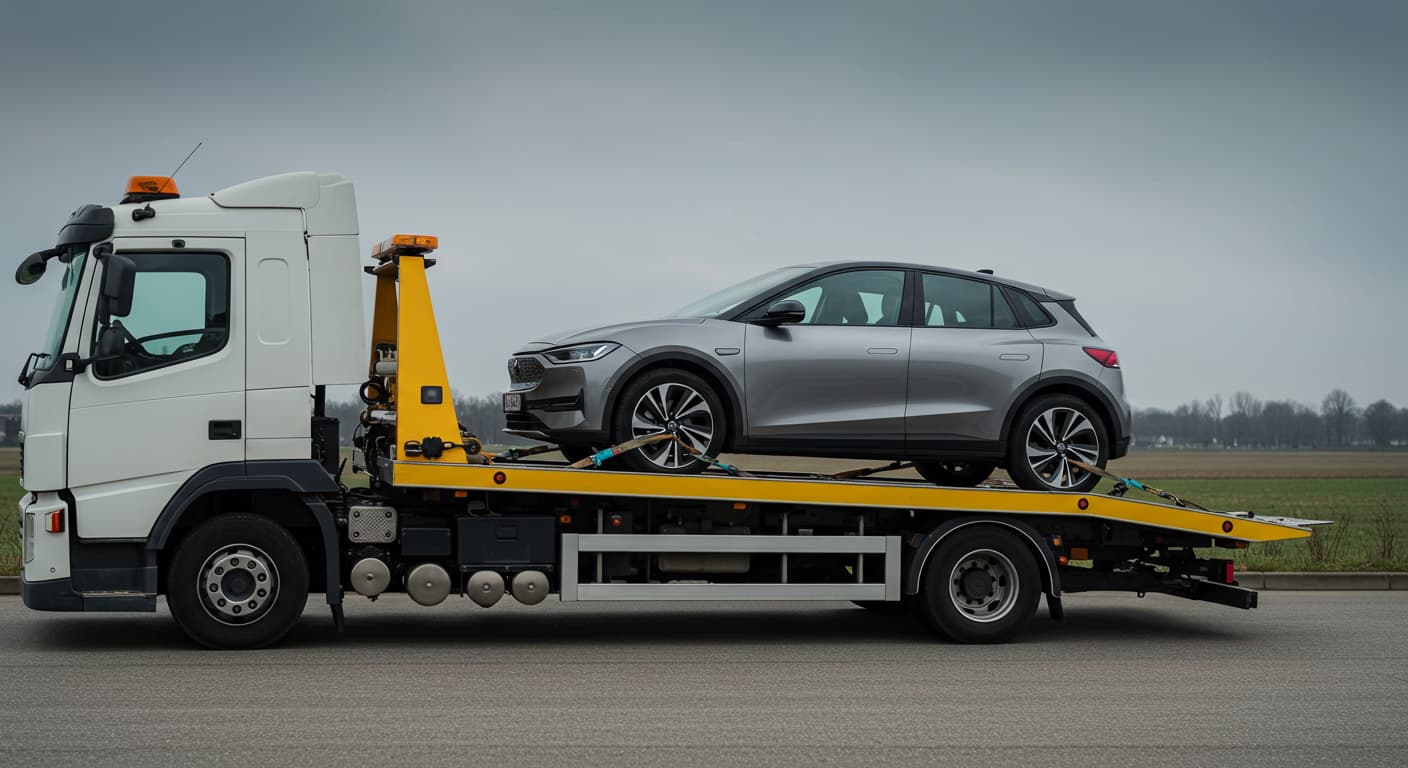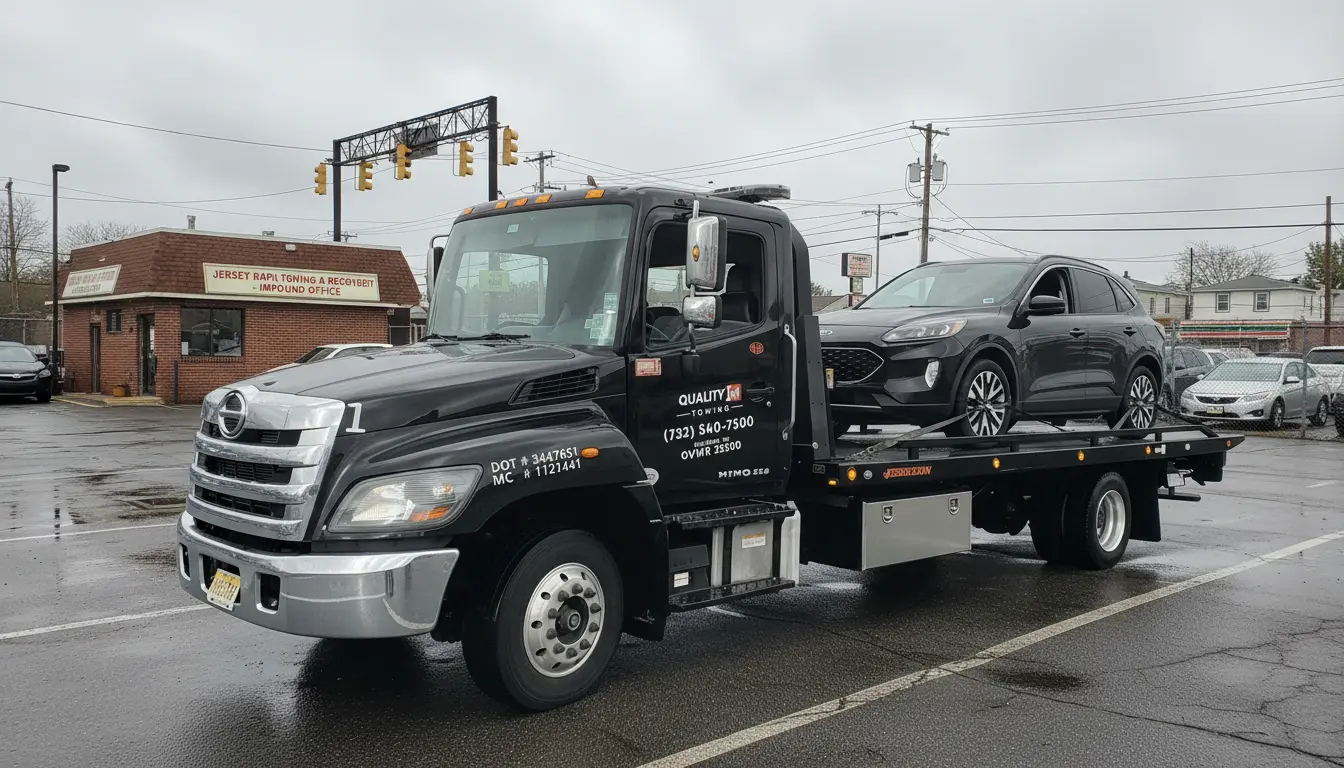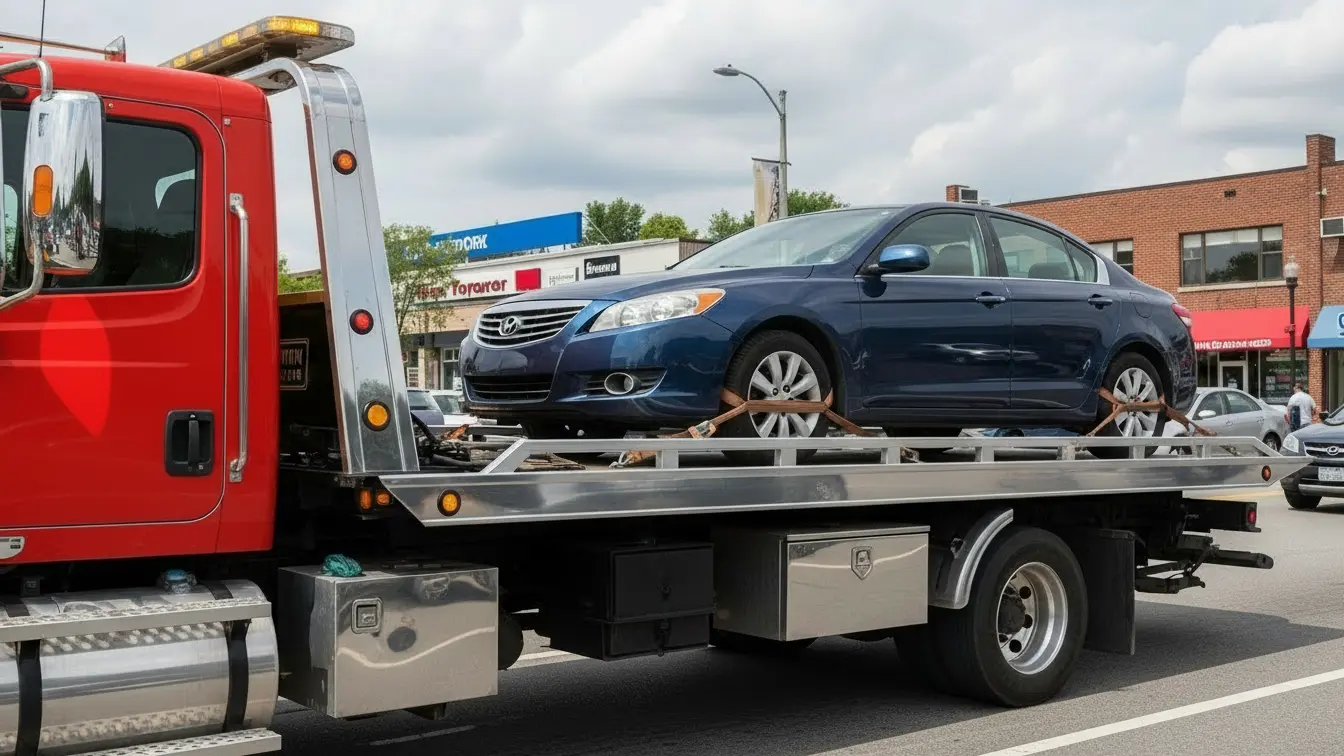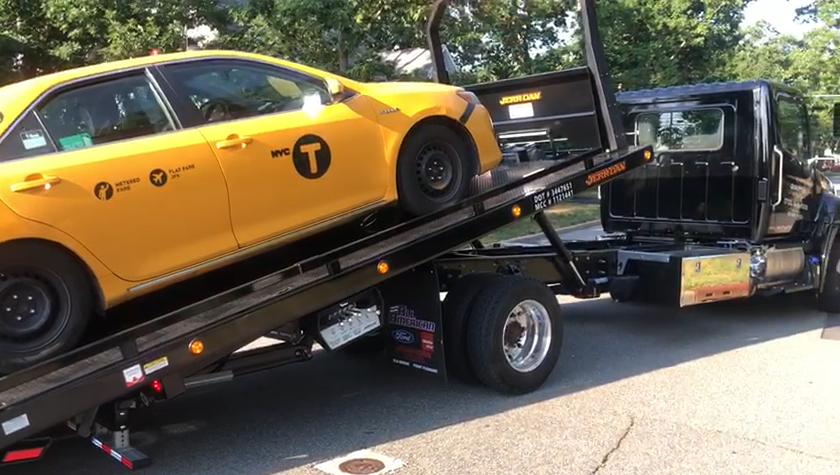The electric vehicle revolution is reshaping American roads, with EV sales growing 40% year-over-year. However, as more drivers make the switch to electric, questions about proper towing procedures have become increasingly important.
The short answer is yes, electric vehicles can be safely towed. But the process requires specialized knowledge and equipment that differ significantly from traditional gasoline vehicles. Here’s what you need to know about electric vehicle towing in NJ.
The Basics of Electric Vehicle Towing
Why Do EVs Require Special Towing Considerations?
Electric vehicles have challenges that conventional towing methods cannot address safely. Unlike gas-powered cars, EVs contain high-voltage battery systems (typically 400-800 volts) and electronic components that can be damaged by improper handling.
The primary concern involves regenerative braking. This is essentially a system that converts kinetic energy back into electrical power when wheels turn. When an EV’s wheels rotate during towing in NJ, this system can generate electricity even when the vehicle is off. This could damage the motor or battery pack.
What are the Risks of Improper EV Towing?
If you try using conventional methods to tow an electric vehicle, you could risk:
- Permanent motor damage requiring $10,000-$20,000 in repairs
- Battery system failures that void manufacturer warranties
- Electrical fires due to overheated components
- Complete loss of the vehicle if damage is severe enough
Approved Towing Methods for Electric Vehicles
Flatbed Towing
Industry experts unanimously recommend flatbed towing as the safest method for electric vehicles. This approach completely removes all wheels from ground contact, which reduces any possibility of regenerative braking activation.
Flatbed towing benefits include:
- Zero risk of drivetrain damage
- Protection from road debris and weather
- Suitable for all EV models regardless of drive configuration
Wheel-Lift Towing
Some electric vehicles can be safely towed using wheel-lift methods, but only under specific conditions. Rear-wheel-drive EVs may be towed with front wheels lifted, while front-wheel-drive models can sometimes be towed with rear wheels up.
However, this method requires:
- Verification of the vehicle’s drive configuration
- Confirmation of manufacturer guidelines
- Professional assessment of the specific EV model
- Maximum distance limitations (usually under 50 miles)
Manufacturer-Specific Towing Guidelines
Tesla Towing Requirements
Tesla, controlling the majority of the US EV market, has strict towing protocols. All Tesla models must be transported on flatbeds or trailers with all four wheels off the ground. The company explicitly states that dolly or wheel-lift towing will void the vehicle’s warranty.
Tesla’s guidelines specify:
- Maximum towing speed of 3 mph when moving short distances
- Complete power shutdown before any towing attempts
- Professional towing service familiar with EV requirements
Other Major EV Manufacturers
Each manufacturer provides specific towing instructions:
- Ford Lightning: Flatbed recommended, limited wheel-lift options available
- Chevrolet Bolt: Flatbed only for distances over 35 miles
- Nissan Leaf: Dolly towing is acceptable for the rear wheels only
- BMW i3/i4: Flatbed preferred, specific procedures for emergency situations
Also Read: How Much Does it Cost to Tow a Car?
What to Do When Your EV Breaks Down?
If your electric vehicle becomes disabled, follow these immediate steps:
- Turn off the vehicle completely using the main power button
- Engage the parking brake to prevent rolling
- Contact emergency services if the situation involves safety risks
- Call a towing service specifically equipped for electric vehicles
- Notify your insurance company, as EV towing often costs more than conventional vehicles
Accident-damaged electric vehicles may require additional safety protocols. First responders and towing professionals must be aware of:
- Potential electrical hazards from damaged battery packs
- Risk of thermal runaway in lithium-ion batteries
- Need for specialized containment during transport
- Requirements for immediate manufacturer notification
How to Choose the Right Towing Service?
Unfortunately, not all companies are capable of towing electric vehicles, despite what they advertise. Before calling for service, please ask these questions:
- Do they have flatbed trucks available immediately?
- Are technicians trained in EV safety protocols?
- Do they carry proper personal protective equipment?
- Can they provide manufacturer-compliant towing methods?
- What is their experience level with your specific EV model?
How to Avoid Needing a Tow in the First Place
Prevention is the Best Medicine
The best towing experience is the one you never have to deal with. This starts with staying ahead of potential problems. Keep a close eye on your battery level and always plan your charging stops before you hit the road; running out of battery is the most common reason EVs need towing. Make it a habit to save contact information for EV-friendly towing companies in your phone, because when you need help, you don’t want to be scrambling to find someone who knows what they’re doing.
Take time to actually read your owner’s manual so you understand your specific car’s towing requirements, since every model is a bit different. And also don’t forget about basic maintenance either. This includes keeping your tires properly inflated and staying current with regular service can prevent a lot of roadside emergencies.
You could even download a few apps that help you locate charging stations nearby, because having backup options gives you peace of mind.
Be Prepared Just in Case
The best move is to research tow trucks near me before you actually need them, so you’re not making frantic calls from the side of the road. Keep your manufacturer’s towing guidelines somewhere accessible in your car, such as your glove compartment, because you might need to reference them or share them with a towing company.
Make sure you understand exactly what your insurance covers when it comes to EV towing, since the costs and requirements are different from regular cars.
It’s also always a good idea to carry backup charging cables and adapters, because sometimes a simple charging issue can be solved without calling for help.
Safe Towing for Your Electric Vehicle!
Electric vehicles absolutely can be towed safely, but it’s not something you want to wing.
As more people buy EVs, towing companies are getting better at dealing with them. The key for you as an EV owner is knowing what your specific car needs and making sure you work with professionals who actually know what they’re doing.
If you’re driving electric in New Jersey and find yourself needing towing in NJ, Quality 1st Towing has the expertise and equipment to handle your EV properly. We understand the ins and outs of electric vehicle towing, so you can trust us to keep your warranty intact while getting you back on the road safely.










